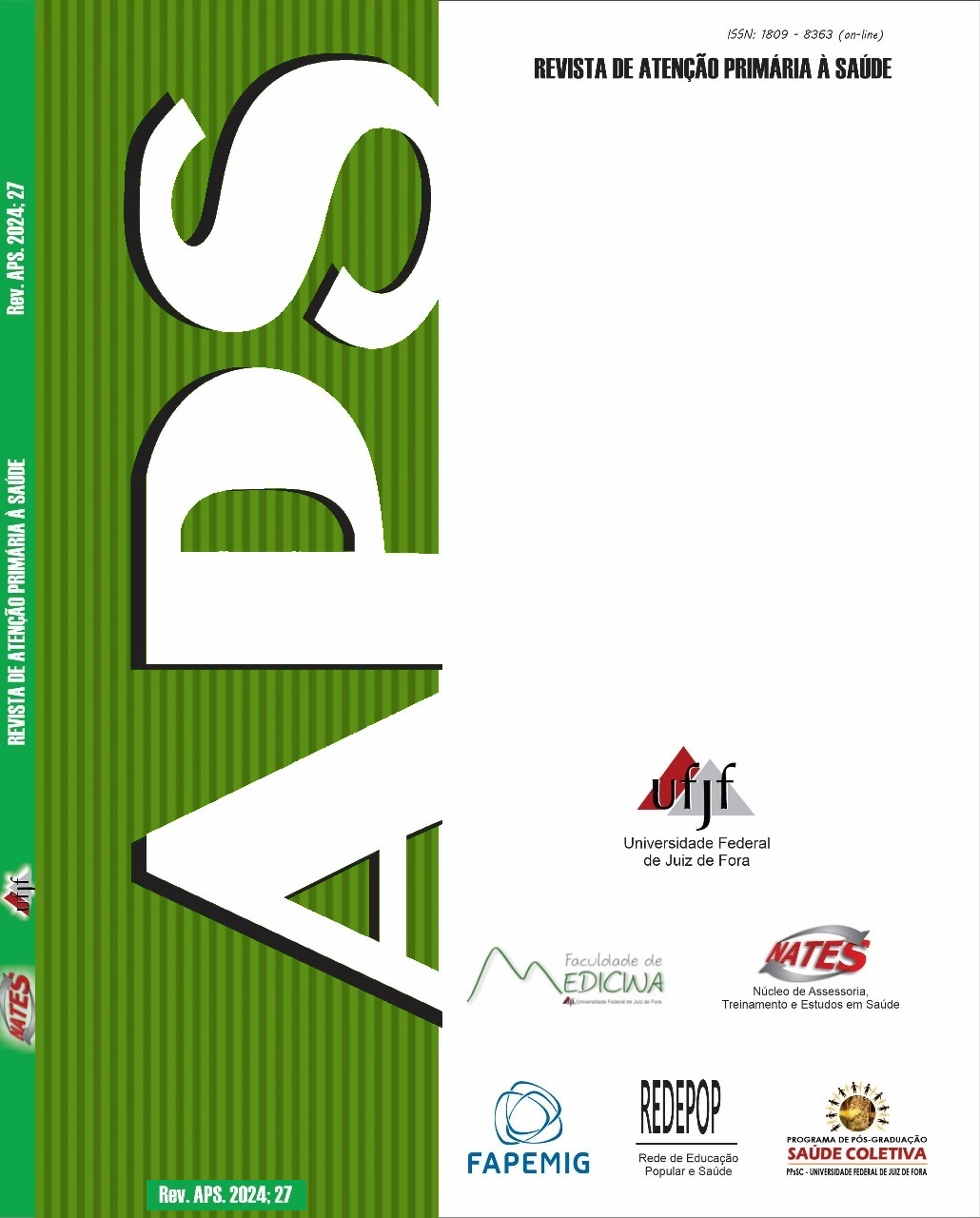Prevalência e fatores associados à síndrome metabólica em Agentes Comunitários de Saúde
DOI:
https://doi.org/10.34019/1809-8363.2024.v27.43311Palavras-chave:
Síndrome Metabólica, Agentes Comunitários de Saúde, Pessoal de Saúde, Saúde do Trabalhador, Atenção Primária à SaúdeResumo
A síndrome metabólica é um distúrbio metabólico complexo, caraterizada pela associação de fatores de risco cardiovascular e resistência à insulina. Na Atenção Primária à Saúde, algumas condições laborais as quais os profissionais estão expostos podem ser fonte de adoecimento, e a literatura evidencia que aspectos laborais estão associados à síndrome metabólica, ou seja, que o contexto ocupacional é capaz de ser um fator de exposição para o desenvolvimento deste problema. O objetivo deste estudo foi estimar a prevalência de síndrome metabólica e os fatores associados em Agentes Comunitários de Saúde de uma cidade do Norte de Minas Gerais, Brasil. Estudo transversal, no qual coletaram dados sociodemográficos, estilo de vida, laborais, antropométricos, bioquímicos e aspectos emocionais. A variável dependente síndrome metabólica foi definida conforme o critério do National Cholesterol Education Program Adult Treatment Panel III. Realizaram-se análises descritivas e de regressão múltipla de Poisson, com variância robusta, considerando um nível de significância de 5% (p<0,05) para o modelo final. Foram avaliados 673 Agentes Comunitários de Saúde, a prevalência de síndrome metabólica foi de 20,8% e associou-se à faixa etária ≥40 anos, menor escolaridade (Fundamental e/ou Médio), sobrepeso/obesidade, lipoproteína de baixa densidade ≥130 mg/dl e proteína C-reativa >5,0 mg/dl. Constatou-se uma elevada prevalência de síndrome metabólica em Agentes Comunitários de Saúde. Verifica-se a necessidade de estudos para o aprofundamento sobre a temática e o desenvolvimento de ações que visem a promoção de hábitos comportamentais saudáveis, bem como a prevenção de fatores de riscos.











